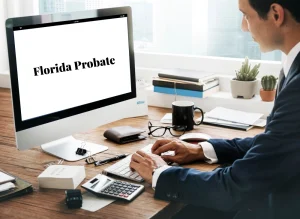
Florida’s probate process has entered the digital age. With cryptocurrency, online banking, and social media becoming part of everyday life, families often wonder how these digital assets fit into probate administration.
Below are the most frequently asked questions about digital property and Florida probate law in 2025.
1. Do digital assets go through probate in Florida?
Yes. Digital assets such as cryptocurrency, online business income, and email accounts are part of your estate. Unless transferred through a trust or beneficiary designation, they must be addressed in probate proceedings.
2. Can Florida courts recover lost crypto or wallet keys?
No. Cryptocurrency is controlled solely by private keys. If those keys are lost, the funds are permanently inaccessible—courts cannot recreate or retrieve them.
3. How can I make sure my family can access my digital accounts after death?
The best way is to:
- Include a digital asset clause in your will or trust.
- Designate a digital executor with authority to manage online accounts.
- Use built-in tools like Google’s “Inactive Account Manager” or Facebook’s “Legacy Contact.”
4. What happens to social media accounts when someone dies?
Each platform has its own rules:
- Facebook allows memorialization or account removal.
- Instagram follows Facebook’s policy.
- Google lets you pre-select who can access your data after inactivity.
- Apple offers a “Digital Legacy” feature for family access.
5. Should I include digital assets in my estate plan?
Absolutely. In 2025, digital assets often hold financial or sentimental value. Listing them in your estate plan prevents disputes, delays, and data loss during probate.
6. Can a Florida probate attorney handle cryptocurrency and NFTs?
Yes, but not all attorneys specialize in digital estates. Choose one experienced with Florida’s Revised Uniform Fiduciary Access to Digital Assets Act (RUFADAA) and digital estate management.
7. Do emails and online subscriptions need to be included in probate?
If they contain financial or business data, yes. Personal emails or subscriptions may be closed, but accounts with important information (like PayPal or online banking) should be listed in the estate inventory.
8. Are digital assets taxable in Florida probate?
Florida has no estate tax, but federal estate tax may apply if digital assets significantly increase the estate’s total value. Cryptocurrency must also be reported for capital gains purposes.
9. What’s the biggest mistake families make with digital assets?
Not preparing access instructions. Without passwords, recovery keys, or authorization in a will, even simple accounts can become permanently locked or lost.
10. Where can I get help managing digital assets during probate?
Consult a Florida probate attorney who understands both traditional and digital property. They can guide executors on how to legally manage online assets while staying compliant with privacy laws.
Final Tip
Managing digital property is no longer optional—it’s part of every complete Florida estate plan. If your loved one owned cryptocurrency, ran an online business, or used social media, make sure those accounts are included in probate and protected under Florida law.
For more details, check out our Florida Probate in the Age of Digital Assets: What Happens to Your Online Accounts and Crypto?



